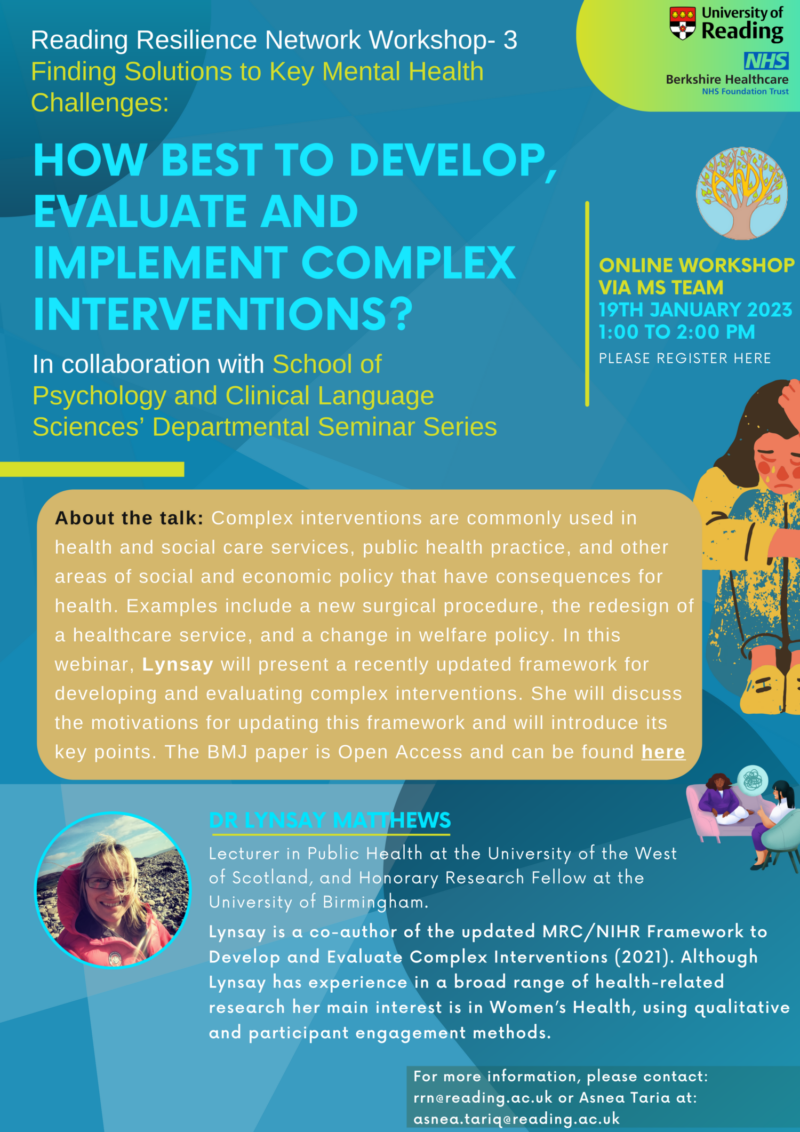How best to develop, evaluate and implement complex interventions?
Reading Resilience Network ‘Findings Solutions to Key Mental Health Challenges’ Series Workshop 3
In collaboration with the School of Psychology and Clinical Language Sciences’ Departmental Seminar Series
About this event
Conventional research that evaluates interventions was largely based on Randomised Controlled Trials on pharmacological treatment. However, it has become increasingly apparent that interventions that fall outside this narrow focus require a much more thoughtful approach to evaluate outcomes in a way that is scientifically robust while at the same time actually meaningful in real-life practice. In this event, the lead author of the recently published Medical Research Council (MRC) Framework for Developing and Evaluating Complex Interventions will give us an overview of this guidance and lead our discussion on how best to apply this in different contexts. We hope that the talk will be of interest to researchers and practitioners across disciplines whose work has implications, directly or indirectly, on the development or improvement of interventions (health, social care, educational, and many other types). We welcome both researchers and practitioners (e.g., from NHS, educational, social care, third sector, and other services) to join us in discussing challenges and how best we can work together to overcome them in research and practice.
Date: Thursday 19th January
Time: 1:00 to 2:00 pm
Venue: Online via Microsoft Teams
About the talk:
Complex interventions are commonly used in the health and social care services, public health practice, and other areas of social and economic policy that have consequences for health. Examples include a new surgical procedure, the redesign of a healthcare service, and a change in welfare policy. In this webinar, Lynsay will present a recently updated framework for developing and evaluating complex interventions. She will discuss the motivations for updating this framework and will introduce its key points. The BMJ paper is Open Access and can be found here.
About the speaker:
Lynsay Mathews is a Lecturer in Public Health at the University of the West of Scotland and an Honorary Research Fellow at the University of Birmingham. Lynsay is a co-author of the updated MRC/NIHR Framework to Develop and Evaluate Complex Interventions (2021). Although Lynsay has experience in a broad range of health-related research, her main interest is in Women’s Health, using qualitative and participant engagement methods.
Followed by Q&A, Chaired by Prof. Stella Chan, University of Reading.
You can watch the talks below and download the slides: Complex framework Reading Resilience___Lynsay Matthews:

